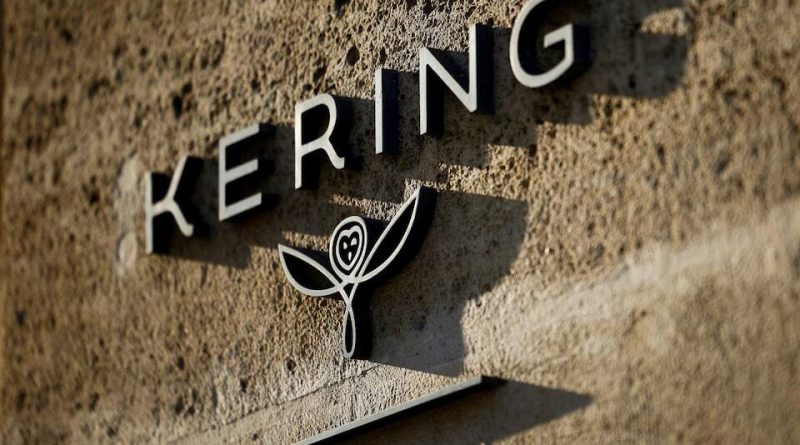Kering Poised to Strengthen Balance Sheet with Potential Sale of Beauty Division to L’Oréal
French luxury powerhouse Kering is reportedly in advanced talks to sell its beauty division to global cosmetics leader L’Oréal for $4 billion, a move that could accelerate growth for both groups while helping Kering reduce debt and focus on its core fashion brands.
French luxury group Kering, the parent company of iconic fashion houses such as Gucci, Bottega Veneta, Balenciaga, and Alexander McQueen, is reportedly nearing a deal to sell its beauty division to L’Oréal, according to sources familiar with the situation. The transaction is expected to be valued at approximately $4 billion, a significant step that could benefit both companies strategically and financially.
The deal would see L’Oréal, the world’s largest dedicated beauty and cosmetics player, acquire the high-end fragrance brand Creed, which Kering purchased in 2023 for 3.5 billion euros ($4 billion).
In addition, L’Oréal would gain rights to develop beauty products linked to Kering’s prestigious fashion labels, including Bottega Veneta, Balenciaga, and Alexander McQueen.
Industry analysts suggest that this acquisition could further cement L’Oréal’s position as a dominant force in the luxury beauty market while allowing Kering to sharpen its focus on fashion.
Kering launched its beauty division in 2023, marking the company’s first dedicated foray into the luxury fragrance and cosmetics sector. The division was built around Creed and other potential high-end beauty projects tied to the company’s fashion brands.
While Kering has made strides in the beauty space, the sale represents a strategic opportunity for the company to streamline operations and address its debt obligations.
The move comes under the leadership of Kering’s new CEO, Luca De Meo, who officially took office in September. De Meo has prioritized optimizing Kering’s portfolio and strengthening its balance sheet.
At the end of June, Kering’s net debt stood at 9.5 billion euros. The sale of the beauty division could significantly reduce this burden, easing investor concerns and freeing capital to invest in the company’s core fashion labels, which continue to enjoy strong global recognition.
Despite global economic challenges, including softening consumer demand in key markets such as China, Kering has maintained its reputation for luxury excellence.
Gucci, its largest brand, has faced slower growth, but recent strategic decisions and De Meo’s appointment have reinvigorated investor confidence. Since mid-June, when De Meo’s appointment was announced, Kering shares have surged by around 60%, reflecting optimism about the company’s future direction.
For L’Oréal, the acquisition represents an exciting opportunity to expand its luxury portfolio and strengthen ties with top-tier fashion brands. The company already commands a leading position in fragrance and cosmetics and has been pursuing selective acquisitions to consolidate its dominance in high-end beauty.
The addition of Creed and beauty rights for Kering’s fashion labels will allow L’Oréal to offer a wider range of luxury products and create synergies between fashion and beauty offerings.
The potential transaction also aligns with broader industry trends where luxury fashion and beauty sectors are increasingly interconnected. Leading fashion houses have found value in collaborating with top cosmetic companies to extend brand influence and reach consumers across multiple lifestyle categories.
By integrating Kering’s beauty assets into L’Oréal’s ecosystem, both companies stand to benefit from enhanced brand visibility and diversified revenue streams.
Market observers have also noted that L’Oréal has been exploring opportunities with other high-profile fashion brands, including the Armani Group. Reports indicate that representatives of Armani approached L’Oréal earlier this month regarding a potential minority stake in the fashion house
. This demonstrates L’Oréal’s continued strategic focus on pairing luxury fashion with world-class beauty expertise, reinforcing its leadership in the sector.
Kering has not publicly commented on the deal, and L’Oréal has not immediately responded to requests for comment. However, sources familiar with the discussions suggest that the agreement could be announced as early as next week, signaling a major milestone in the luxury and beauty industries.
Analysts view the potential sale as a positive development for both parties. Kering can concentrate on its high-growth fashion brands and reduce financial leverage, while L’Oréal strengthens its portfolio with prestigious fragrance and beauty assets.
Industry experts suggest that such moves illustrate how leading companies in fashion and beauty are leveraging strategic partnerships to remain competitive in a fast-evolving global market.
In summary, the potential sale of Kering’s beauty division to L’Oréal represents a win-win scenario. Kering gains financial flexibility and a clearer strategic focus, while L’Oréal expands its luxury offerings and deepens connections with top fashion brands.
As both companies continue to innovate in their respective sectors, the deal could set a benchmark for future collaborations between luxury fashion and beauty industries worldwide.



